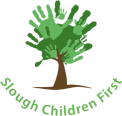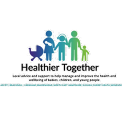Early Help (professionals)
The provision of Early Help relies on organisations and agencies working together to provide the right support at the right time to children, young people and families.
The delivery of our Early Help offer includes:
- local authority services (education, housing, social care)
- health services
- police
- community
- voluntary sector organisations
- faith groups
working with children, young people and families to improve their situations and build a positive future.
All levels of support prior to statutory and specialist services make up our Early Help offer.
Slough Early Help Partnership strategy (draft)
Check Slough Early Help Partnership strategy (draft). Please note: This file may not be suitable for users of assistive technology. Please go to our accessibility statement for more information.
Universal support
Universal support is:
- delivered within the community
- the basic provision of services available to all children, young people and families.
- self-accessible and meets general needs. Examples of services are school education, GP, maternity care.
Families can:
- check Slough Information and Services Guide and
- self access universal services.
Additional support
Additional support:
- is led by professionals within the community
- is offered when needs require more than the support of universal services or a single agency.
- requires partnership working and a plan of support to prevent a situation getting worse. For example: school attendance issues, housing issues, low mood.
Support for partners agencies is available through Early Help surgeries and the Early Help Champions Forum.
Targeted support
When there are a number of challenges impacting the family or the additional support that they have been given isn’t helping, a Family Support Worker or Targeted Youth Worker may be able to offer further support.
They will:
- complete an Early Help Assessment
- create an intensive multi agency support plan to find a way to make things better.
Everyone will work together to support the family through a ‘Team Around the Child and their Family’ process.
Referrals to the Targeted Early Help Service are made via Slough Children First Front Door.
Please email a completed Multi-Agency Referral Form (MARF) - Slough Children’s First to sloughchildren.referrals@sloughchildrenfirst.co.uk.
If you need some advice about the threshold of support needed for a child and their family, you can call the Front Door Service on 01753 875362.
Early Help surgeries
The Early Help surgeries offer help to all practitioners who have identified the need for additional support at an early help level for a:
- child, young person and/or
- family.
The need for additional support has been identified through:
- focussing on thresholds of need in relation to identified concerns/ support needs.
- consideration of appropriate assessment tools to inform next steps.
- identifying appropriate services to offer support.
- coaching, support, advice and guidance around delivering additional support as a Lead Professional.
- advice and support related to developing multi-agency ‘Team Around the Child and their Family’ meetings.
- guidance on involving children, young people and families in planning and decision making.
- developing SMART early help plans
- opportunities to discuss and problemsolve together with other professionals.
All surgeries will be held on Microsoft Teams. (The same log in details always).
- Meeting ID: 348 053 953 288
- Passcode: AVHHch.
Professionals can join at any point during the 3-hour slot.
Details of children, young people and families discussed will be anonymised for confidentiality purposes.
Dates:
- Tuesday 23 April – 1pm to 4pm
- Wednesday 8 May – 9.30am to 12.30pm
- Tuesday 28t May – 1pm to 4pm
- Friday 14 June – 9.30am to 12.30pm.
For further information email adriana.lozano@sloughchildrenfirst.co.uk or call 07714 639249.
Early Help community offer for children
Early Help community offer for adults
Reducing parental conflict
Parental conflict:
- refers to disagreements or tension between parents or caregivers who share the responsibility for raising a child
- can occur during relationships, marriage, divorce or separation
- can have negative effects on children's emotional and psychological well-being.
The following are some important points to know about parental conflict.
- Children can be negatively affected by parental conflict: children who witness frequent, intense and/or poorly resolved conflict between their parents can experience emotional distress, anxiety, depression, and behavioural problems.
- Conflict can arise from a variety of issues: Parental conflict can stem from disagreements about parenting decisions, finances, infidelity, or other issues. Conflict can also arise from unresolved emotional issues from the past.
- Conflict can be managed: while complete elimination of conflict may not always be possible, parents can work to manage and reduce conflict in healthy ways. This can include seeking counselling or mediation, practicing effective communication skills, and prioritizing the best interests of their children.
- Children benefit from healthy co-parenting: children fare better when parents are able to cooperate and work together in their parenting roles, even if they are no longer in a romantic relationship. Co-parenting involves maintaining respectful communication, consistent rules and expectations, and a focus on the child's well-being.
Universal Offer
You may recognise that some parents in your settings are struggling with parental conflict, difficult separations or relationship breakdowns and may benefit from further support. The DWP offers the following three FREE online courses to support parents.
- Me, you and baby too is for new and expectant parents (baby up to the age of 24 months) – parents still in a relationship.
- Arguing better is for parents with children aged 2+ - parents still in a relationship.
- Getting it right for children is for separated or divorced parents – learning is via videos showing the new learned behaviours and its benefits.
Parents can create an account and access the oneplusone courses from the comfort of their own homes. Their progress can be saved as they work through the course.
It is beneficial that:
- they have reflection time whilst completing the course to gauge their own learning.
- you check in with them and ask how they are getting on with the course.
To check the online training prior to promoting the materials, you can create a practitioner account on oneplusone website to access the practitioner guides which cover all of the courses.
Targeted offer
Family Transitions Triple P is:
- a 5 week course which is face to face
- for separated or divorced parents
- delivered as a women’s group and men’s group to remain impartial
- an intensive course and is therefore a targeted offer.
This course focuses on:
- making a positive family transition whilst separating or divorcingd
- dealing with difficult feelings and emotions
- taking care of yourself as an individual
- talking to your children about separation or divorce
- devising an effective co-parenting plan.
For details and to make a referral contact Stacy Thomas, Reducing Parental Conflict Co-Ordinator for Targeted Early Help, Slough Children First on 07717 356666 or email stacy.thomas@sloughchildrenfirst.co.uk.





